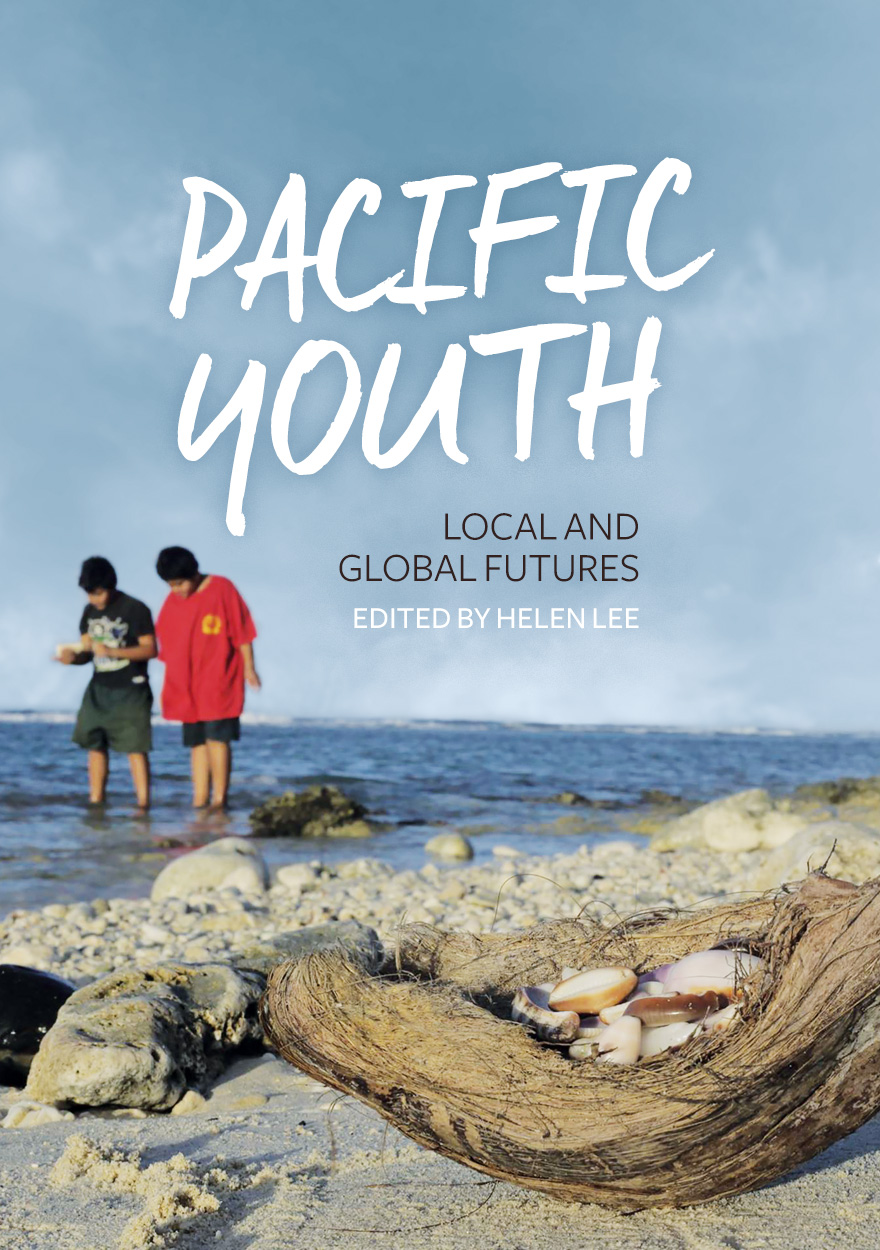Search titles
Displaying results 171 to 180 of 853.

Wiidhaa »
An Introduction to Gamilaraay
Authored by: John Giacon
Publication date: February 2020
The Gamilaraay language declined in use for many years after the colonisation of Australia. From around 1990, Gamilaraay people and others have been working to revive the language. This book draws on recent research into previous records and analyses of Gamilaraay and of the closely related, and better recorded, Yuwaalaraay. It provides an introduction to many aspects of the language including verbs, the case system and the extensive pronoun paradigm, in a format that students have found very helpful for the last 12 years.
Please note: Readers will need to download and open the PDF files in the latest version Adobe Acrobat to access and listen to the sound files within the book.
This textbook is used as course material in:
Gamilaraay – an introduction to an Australian Indigenous Language INDG2003 and INDG6003

Australia’s Fertility Transition »
A study of 19th-century Tasmania
Authored by: Helen Moyle
Publication date: February 2020
In the late 19th and early 20th centuries, most countries in Europe and English-speaking countries outside Europe experienced a fertility transition, where fertility fell from high levels to relatively low levels. England and the other English-speaking countries experienced this from the 1870s, while fertility in Australia began to fall in the 1880s.
This book investigates the fertility transition in Tasmania, the second settled colony of Australia, using both statistical evidence and historical sources. The book examines detailed evidence from the 1904 New South Wales Royal Commission into the Fall in the Birth Rate, which the Commissioners regarded as applying not only to NSW, but to every state in Australia.
Many theories have been proposed as to why fertility declined at this time: theories of economic and social development; economic theories; diffusion theories; the spread of secularisation; increased availability of artificial methods of contraception; and changes in the rates of infant and child mortality. The role of women in the fertility transition has generally been ignored.
The investigation concludes that fertility declined in Tasmania in the late 19th century in a period of remarkable social and economic transformation, with industrialisation, urbanisation, improvements in transport and communication, increasing levels of education and opportunities for social mobility. One of the major social changes was in the status and role of women, who became the driving force behind the fertility decline.

Civil Society and Transitional Justice in Asia and the Pacific »
Publication date: November 2019
Over the last two decades, civil society has helped catalyse responses to the legacies of violent conflicts and oppressive political regimes in Asia and the Pacific. Civil society has advocated for the establishment of criminal trials and truth commissions, monitored their operations and pushed for take-up of their recommendations. It has also initiated community-based transitional justice responses. Yet, there has been little in-depth examination of the breadth and diversity of these roles. This book addresses this gap by analysing the heterogeneity of civil society transitional justice activity in Asia and the Pacific.
Based upon empirically grounded case studies of Timor-Leste, Indonesia, Cambodia, Myanmar, Bougainville, Solomon Islands and Fiji, this book illustrates that civil society actors can have different – and sometimes competing – priorities, resources and approaches to transitional justice. Their work is also underpinned by diverse understandings of ‘justice’. By reflecting on the richness of this activity, this book advances contemporary debates about transitional justice and civil society. It will also be a valuable resource for scholars and practitioners working on Asia and the Pacific.

Commonwealth Responsibility and Cold War Solidarity »
Australia in Asia, 1944–74
Authored by: Dan Halvorson
Publication date: November 2019
Australia’s engagement with Asia from 1944 until the late 1960s was based on a sense of responsibility to the United Kingdom and its Southeast Asian colonies as they navigated a turbulent independence into the British Commonwealth. The circumstances of the early Cold War decades also provided for a mutual sense of solidarity with the non‑communist states of East Asia, with which Australia mostly enjoyed close relationships. From 1967 into the early 1970s, however, Commonwealth Responsibility and Cold War Solidarity demonstrates that the framework for this deep Australian engagement with its region was progressively eroded by a series of compounding, external factors: the 1967 formation of ASEAN and its consolidation by the mid-1970s as the premier regional organisation surpassing the Asian and Pacific Council (ASPAC); Britain’s withdrawal from East of Suez; Washington’s de‑escalation and gradual withdrawal from Vietnam after March 1968; the 1969 Nixon doctrine that America’s Asia-Pacific allies must take up more of the burden of providing for their own security; and US rapprochement with China in 1972. The book shows that these profound changes marked the start of Australia’s political distancing from the region during the 1970s despite the intentions, efforts and policies of governments from Whitlam onwards to foster deeper engagement. By 1974, Australia had been pushed to the margins of the region, with its engagement premised on a broadening but shallower transactional basis.

International Review of Environmental History: Volume 5, Issue 2, 2019 »
Edited by: James Beattie
Publication date: November 2019
International Review of Environmental History takes an interdisciplinary and global approach to environmental history. It encourages scholars to think big and to tackle the challenges of writing environmental histories across different methodologies, nations, and time-scales. The journal embraces interdisciplinary, comparative and transnational methods, while still recognising the importance of locality in understanding these global processes.
The journal's goal is to be read across disciplines, not just within history. It publishes on all thematic and geographic topics of environmental history, but especially encourage articles with perspectives focused on or developed from the southern hemisphere and the ‘global south’.
Download for free
Not available for purchase

East Asia Forum Quarterly: Volume 11, Number 4, 2019 »
Publication date: November 2019
The idea that countries can pursue prosperity and security as separate streams of the national interest has passed. Economics and security have always been enmeshed, although we assumed otherwise. The nature of the relationship between the two is changing fast. The narratives that surround the change find it difficult to keep up with the facts.
The world has become more multipolar, with remarkable growth outside the established powers in the North Atlantic. And big countries—not just the United States and China, but other G20 members like Brazil, Turkey, Russia and the United Kingdom—have become more nationalist and brazen in asserting what they perceive to be their economic and security interests over those of others. The US–China relationship is increasingly characterised by strategic competition in both the economic and security domains.
At the same time, digital technology has not just transformed products, firms and markets, it has opened them to cyber disruption and attack, resulting in a cross-over of security into the economic and social domains.
This issue of the East Asia Forum Quarterly explores what is happening, why and how to respond to the change. These essays argue for careful thought and active engagement by governments, business and the broader community. Genuine dialogue and problem-solving between the economic and security parts of universities and government is a good first step to frame the problem broadly, keep perspective and find solutions.
East Asia Forum Quarterly grew out of East Asia Forum (EAF) online, which has developed a reputation for providing a platform for the best in Asian analysis, research and policy comment on the Asia Pacific region in world affairs. EAFQ aims to provide a further window onto research in the leading research institutes in Asia, and to provide expert comment on current developments within the region. East Asia Forum Quarterly, like East Asia Forum online, is an initiative of the East Asia Forum and its host organisation, the East Asian Bureau of Economic Research in the Crawford School of Economics and Government in the College of Asia & the Pacific at The Australian National University.
Download for free
Not available for purchase

Pacific Youth »
Local and Global Futures
Edited by: Helen Lee
Publication date: October 2019
Pacific populations are becoming younger and this ‘youth bulge’ is often perceived as a dangerous precursor to civil unrest. Yet young people are also a valuable resource holding exciting potential for the future of island nations. Addressing these conflicting views of youth, this volume presents ethnographic case studies of young people from across the Pacific and the diaspora. Moving beyond the typical focus on ‘youth problems’ in reports by Pacific governments and development agencies, the authors examine the highly diverse lives and perspectives of young people in urban and rural locations. They celebrate the contributions of youth to their communities while examining the challenges they face. The case studies explore the impacts of profound local and global changes and cover a wide sweep of youth experiences across themes of education, employment and economic inequalities, political and civil engagement, and migration and the diaspora.
Contributors to this volume bring many decades of experience of research with Pacific people as well as fresh perspectives from early career and graduate researchers. Most are anthropologists and their chapters contribute to the interdisciplinary fields of youth studies and Pacific studies, offering thought-provoking insights into the possibilities for Pacific youth as they face uncertain futures.

Framing the Islands »
Power and Diplomatic Agency in Pacific Regionalism
Authored by: Greg Fry
Publication date: October 2019
Since its origins in late eighteenth-century European thought, the idea of placing a regional frame around the Pacific islands has never been just an exercise in geographical mapping. This framing has always been a political exercise. Contending regional projects and visions have been part of a political struggle concerning how Pacific islanders should live their lives. Framing the Islands tells the story of this political struggle and its impact on the regional governance of key issues for the Pacific such as regional development, resource management, security, cultural identity, political agency, climate change and nuclear involvement. It tells this story in the context of a changing world order since the colonial period and of changing politics within the post-colonial states of the Pacific.
Framing the Islands argues that Pacific regionalism has been politically significant for Pacific island states and societies. It demonstrates the power associated with the regional arena as a valued site for the negotiation of global ideas and processes around development, security and climate change. It also demonstrates the political significance associated with the role of Pacific regionalism as a diplomatic bloc in global affairs, and as a producer of powerful policy norms attached to funded programs. This study also challenges the expectation that Pacific regionalism largely serves hegemonic powers and that small islands states have little diplomatic agency in these contests. Pacific islanders have successfully promoted their own powerful normative framings of Oceania in the face of the attempted hegemonic impositions from outside the region; seen, for example, in the strong commitment to the ‘Blue Pacific continent’ framing as a guiding ideology for the policy work of the Pacific Islands Forum in the face of pressures to become part of Washington’s Indo-Pacific strategy.

Levelling Wind »
Remembering Fiji
Authored by: Brij V. Lal
Publication date: October 2019
‘What I have sought to do in my work is to give voiceless people a voice, place and purpose, the sense of dignity and inner strength that comes from never giving up no matter how difficult the circumstances. History belongs as much to the vanquished as to the victors.’
— Brij V. Lal
‘Professor Brij Lal is the finest historian of the Indian indentured experience and the Indian diaspora. His Girmitiyas is a classic.’
— Emeritus Professor Clem Seecharan, London Metropolitan University
‘Brij Lal is a highly respected, versatile and imaginative scholar who has made a lasting contribution to the historiography of the Pacific.’
— Dr Rod Alley, Victoria University of Wellington
‘Professor Brij Lal’s life is a remarkable journey of a scholar and an intellectual whose writings are truly transformative; a man of moral clarity and courage who also has deep pain at being cut off from his homeland.’
— Professor Michael Wesley, Dean of the College of Asia and the Pacific, The Australian National University
‘Brij Lal is a singular scholar, whose work has spanned disciplines – from history, political commentary, encyclopedia, biography and “faction”. Brij is without doubt the most eminent scholar in the humanities and social sciences Fiji has ever produced. He also remains one of the most significant public intellectuals of his country, despite having been banned from entering it in 2009.’
— Emeritus Professor Clive Moore, University of Queensland
‘Brij Lal is an accomplished and versatile historian and true son of Fiji. Above all, there is affirmation here of the enduring worth of good literature and the value of good education that Lal received and wants others to experience. The world needs more Lals who speak out against ruling opinions and dare to stray into the pastures of independent thought.’
— Professor Doug Munro, historian and biographer, Wellington, and Adjunct Professor at the University of Queensland

Made in China Journal: Volume 4, Issue 3, 2019 »
Edited by: Ivan Franceschini, Nicholas Loubere
Publication date: September 2019
Bless you prison, bless you for being in my life. For there, lying upon the rotting prison straw, I came to realise that the object of life is not prosperity as we are made to believe, but the maturity of the human soul.
— Alexandr I. Solzhenitsyn, The Gulag Archipelago (1918-1956)
With these words, Soviet star dissident Aleksandr Solzhenitsyn exalted the transformative role of the gulag—where he had been imprisoned for eight years—in reconfiguring his soul. Just like his account of life in the labour camps played a fundamental role in shaping public perceptions of the Soviet labour camps, our views of the Chinese detention system are also widely shaped by the writings and testimonies of former political prisoners, whether victims of the mass campaigns of the Mao era or more recent crackdowns against dissident voices. Reading these accounts, detention easily assumes the tragic connotations of martyrdom, and detainees come to be surrounded by a halo of heroism. But what about those uncountable prisoners who are detained for common crimes or less-noble causes? What about the reality of murderers, thieves, drug addicts, and prostitutes? Is prison a blessing for them too?
This issue of the Made in China Journal aims to provide a more balanced account of Chinese experiences of detention by examining situations as diverse as reeducation camps in Xinjiang, forced detox camps for drug addicts, involuntary hospitalisation of people with mental health problems, the contested legacies of labour camps from the Maoist past, and the latest reforms in the fields of Chinese criminal justice. Such grim analyses are also key to understanding the upheavals that are currently taking place in Hong Kong. We should not forget that the popular mobilisations of these past months began in response to attempts by the Hong Kong authorities to pass an extradition bill that would have established a new case-by-case model to transfer fugitives to any jurisdiction that the former British colony lacks a formal agreement with, including mainland China. Reading the accounts included in this issue of the journal, it is not difficult to understand why this became a flashpoint.
Download for free
Not available for purchase



